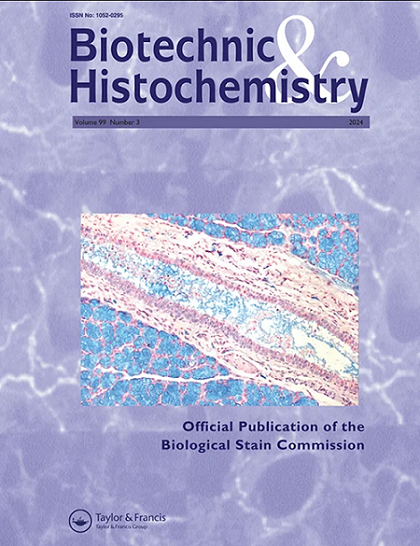乳腺癌精准医疗时代的生物标志物评估和分子检测优化。
IF 1.4
4区 生物学
Q4 BIOTECHNOLOGY & APPLIED MICROBIOLOGY
引用次数: 0
摘要
在分子生物学重大技术发展的推动下,医学领域取得了突破性进展,为我们带来了一种新的癌症治疗模式,这种模式被称为个性化医学或精准医学。精准医疗是一种医疗决策模式,它采用创新的临床方法和先进的肿瘤检测方法,为了解患者的肿瘤生物学特性及其疾病的分子驱动因素而量身定制。这种医疗模式包括诊断检测和特定治疗方案的组合,可在患者发病时提供给患者,理论上也可在患者整个病程中提供给患者,因为随着疾病的复发会出现新的突变。尽管精准医疗模式为改变癌症治疗提供了令人难以置信的潜力,但这些进步只有在惠及正确的患者时才有意义。不断发展的精准医学模式正在改变病理学的实践,病理学界需要注意这些变化,因为每一份组织标本都代表着患者的生命,而这些患者正依赖于病理学界正确处理他们的组织。病理实验室为精准医疗所做的诊断检测越来越复杂,病理学家以及整个实验室和临床界都需要采取措施,确保在癌症患者持续治疗的每一个步骤中,都能为正确的患者提供正确的诊断,以便在正确的时间提供正确的治疗方案。自 2000 年代初以来,激素受体和人类表皮生长因子受体 2 (HER2) 过度表达和/或扩增一直是乳腺癌风险分级和治疗决策的主要依据,而 2000 年代初佩罗及其同事在基因表达方面的开创性工作则为乳腺癌预后和预测评估中的分子检测打开了大门。现在,分子检测已成为乳腺癌精准医疗模式中标准治疗的一部分。在本文中,读者将更好地了解分析前因素缺乏标准化如何可能对下游生物标记物和分子检测的组织标本质量产生负面影响,并最终对患者护理产生负面影响。读者还将深入了解当前围绕乳腺癌分子检测的环境。本文章由计算机程序翻译,如有差异,请以英文原文为准。
Optimized biomarker evaluation and molecular testing in the era of breast cancer precision medicine.
Ground breaking advances in medicine, driven in part by major technologic developments in molecular biology have led us to a new model for cancer care that has been termed personalized, or precision medicine. Precision medicine is a model for making medical decisions that employs an innovative clinical approach and advanced tumor testing methods that are tailored to understanding an individual patient's tumor biology and the molecular drivers of their disease. This medical model includes a combination of diagnostic testing and specific treatment options that can be offered to patients at presentation and in theory throughout the course of their disease as new mutations arise with the development of disease recurrence. Although the precision medicine model offers incredible potential to transform cancer care, these advances are only meaningful when they reach the correct patients. The evolving paradigm of precision medicine is changing the practice of pathology, and the pathology community needs to be mindful of these changes because every tissue specimen represents a patient's life, and those patients are depending on the pathology community to handle their tissue correctly. The diagnostic tests performed in the pathology laboratory for precision medicine are increasingly complex, and pathologists along with the entire laboratory and clinical communities need to take steps to ensure that the right diagnosis is given to the right patient to inform the right treatment options, at the right time, along every step of the continuum of care for cancer patients. While hormone receptors and human epidermal growth factor receptor 2 (HER2) overexpression and/or amplification have been the mainstay for risk-stratification, and treatment decision making in breast cancer since the early 2000's, the seminal work on gene expression by Perou and colleagues in the early 2000's opened the door for molecular testing in the prognostic and predictive assessment of breast cancer. Molecular testing is now part of the standard of care in the precision medicine model for breast cancer care. In this article, the reader will gain a better understanding of how the lack of standardization of pre-analytic factors has the potential to negatively impact the quality of the tissue specimen for downstream biomarker and molecular testing, which ultimately can negatively affect patient care. The reader will also gain insight into the current climate surrounding molecular testing in breast cancer.
求助全文
通过发布文献求助,成功后即可免费获取论文全文。
去求助
来源期刊

Biotechnic & Histochemistry
生物-生物工程与应用微生物
CiteScore
3.40
自引率
6.20%
发文量
46
审稿时长
6-12 weeks
期刊介绍:
Biotechnic & Histochemistry (formerly Stain technology) is the
official publication of the Biological Stain Commission. The journal has been in continuous publication since 1926.
Biotechnic & Histochemistry is an interdisciplinary journal that embraces all aspects of techniques for visualizing biological processes and entities in cells, tissues and organisms; papers that describe experimental work that employs such investigative methods are appropriate for publication as well.
Papers concerning topics as diverse as applications of histochemistry, immunohistochemistry, in situ hybridization, cytochemical probes, autoradiography, light and electron microscopy, tissue culture, in vivo and in vitro studies, image analysis, cytogenetics, automation or computerization of investigative procedures and other investigative approaches are appropriate for publication regardless of their length. Letters to the Editor and review articles concerning topics of special and current interest also are welcome.
 求助内容:
求助内容: 应助结果提醒方式:
应助结果提醒方式:


